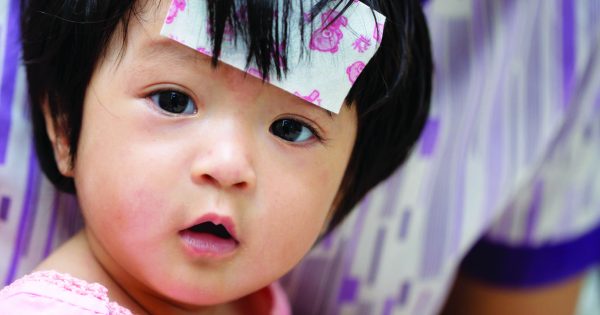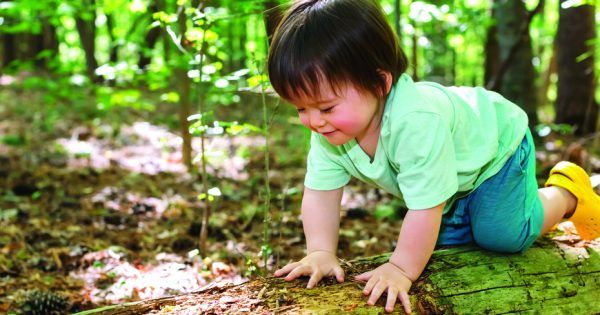Have you ever heard your kids curse or lie, and then wonder, “Where did they learn that behaviour from?” A theory called Social Learning Theory developed and written by Albert Bandura, a psychologist, states that learning is influenced by psychological factors and environmental stimuli. This basically means that kids can learn and pick up behaviours by observing their surroundings.
As the saying goes, ‘Monkey see, monkey do’. Kids usually learn by imitating the behaviour of the people around them, especially parents, without knowing if the behaviour is good or bad. You may repeatedly tell your kids to follow your instructions, instead of your actions, but the opposite is more likely to happen. Kids tend to retain non-verbal messages compared to verbal directions.
Kids Emulate your Bad Behaviour
Without realising that your kids can learn from observing your behaviour, you might become an unintentional and counter-productive model of bad behaviour to them. Bad habits, harmful lifestyle choices, or mental health issues can negatively affect your kids. As parents, we are often blind to our own bad habits, and you may want to sit down with your partner to talk things out. Remember to approach this positively with the intent to identify and change the bad habit, without resorting to fault-finding.
Dishonesty: There are various reasons why adults or kids lie. They might want to get out of trouble, gain something, protect or impress someone, or many other reasons. Parents may lie to their kids to make their kids behave or to protect their feelings. However, you can unintentionally teach your kids that lying is a normal thing to do if you keep doing it. Kids have the capacity to know that parents are lying when they observe that the facts are different from what you are telling them. Even white lies — innocent, harmless lies, can set an example that lies are alright. In some situations, it is important to teach your kids the difference between lying and being polite.
Cursing: While you may not curse at your kids, there may be times when you feel the need to scold and curse, for example if a person is being rude to you. This might also be an unintentional habit, when you automatically utter curse words whenever you are shocked, for example when you hear a thunder. No matter the context, kids are very impressionable to curse words even if they do not know the meaning. They might think it is a cool word, or try to attract your attention by using it, and as they grow older, they will learn its meaning. Habitual cursing by parents can definitely affect kids and normalise their use of curse words.
Anger problem/Aggression: In the ‘Bobo doll’ study conducted by Bandura, kids who observed adults acting either aggressively or peacefully towards a toy doll are found to imitate and re-enact the action they observed on the doll. Kids who have witnessed their parents acting aggressively are also found to be more likely to develop aggression or an anger problem. They might get the idea that being aggressive or angry can help resolve their problems, and once they experienced the adrenaline rush or the ‘power’ that they can get from these actions, it can become a habit.
Inactivity: Parents often tell their kids to be more physically active. At the same time, parents need to consider if they are showing a good example to their kids. Lazy or inactive parents are less likely to take their kids out for recreational activities and will then not be able to encourage their kids to be more active. Kids will be more motivated to do physical activities if they have active and involved parents.
Usage of alcohol/cigarettes/drugs: Kids with parents who use alcohol, drugs, or cigarettes are more likely to start using these substances. Seeing their parents using alcohol or cigarettes to cope with stress can teach kids that substances are needed when dealing with problems in life. This idea can be dangerous and lead kids to abuse these substances.
Addiction to gadget/internet: Nowadays, even toddlers are given gadgets as a tool to distract them from throwing a tantrum. Some parents do this so that they can attend to their own gadgets. As the kids get older, their parents might want to limit their use of gadgets, video games, or social media. However, parents who are themselves glued to their social media pages are not in a position to convince and advise their kids to control their use of gadgets.
Anxiety: Becoming nervous because of an upcoming exam or a looming deadline is normal, but there is a point when you can become overly anxious. Parents with anxiety problems, who are constantly and overly worried about everything can impart a message to their kids that the world is not a safe place. As a result, these kids can grow up to develop an unhealthily pessimistic worldview and have anxiety problems themselves.
Depression: Depression can be caused by various reasons, and being neglected during childhood can be one of them. Parents with depression tend to be cold and indifferent to their kids, and might not notice that they are neglecting them. The emotional development of kids receiving less stimulation, care and attention from their depressed parents can be negatively affected. This can turn into a vicious cycle if the situation goes unresolved.
A positive recommendation is to reflect on your own behaviours, have a talk with your spouse, and see if you practice or have any of these habits or conditions. These behaviours might not seem as bad from your own perspective, but when parenting, they can negatively influence your kids’ development and behaviour. After identifying any problems, you have to be determined to resolve these issues and try to get help from relevant resources. Always be aware that kids are very easily influenced by your behaviour and think it through before doing or saying anything bad in front of them.
An educational collaboration with Malaysian Mental Health Association.








Comments